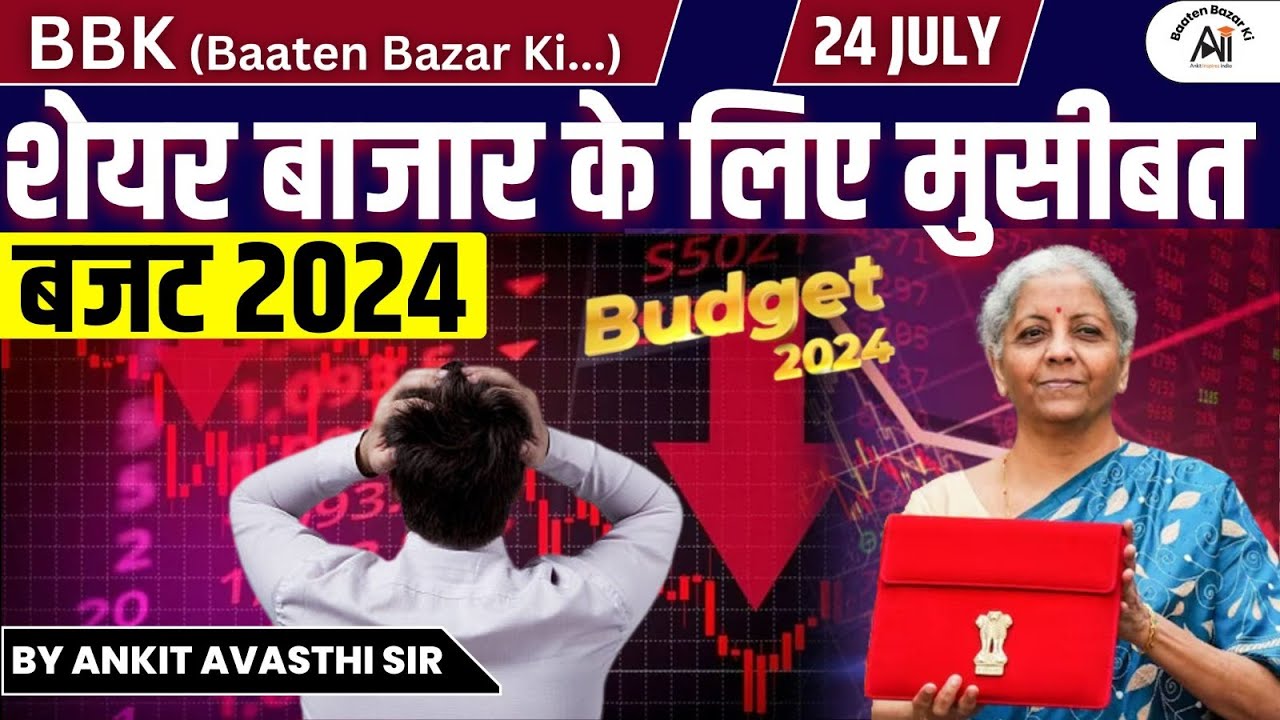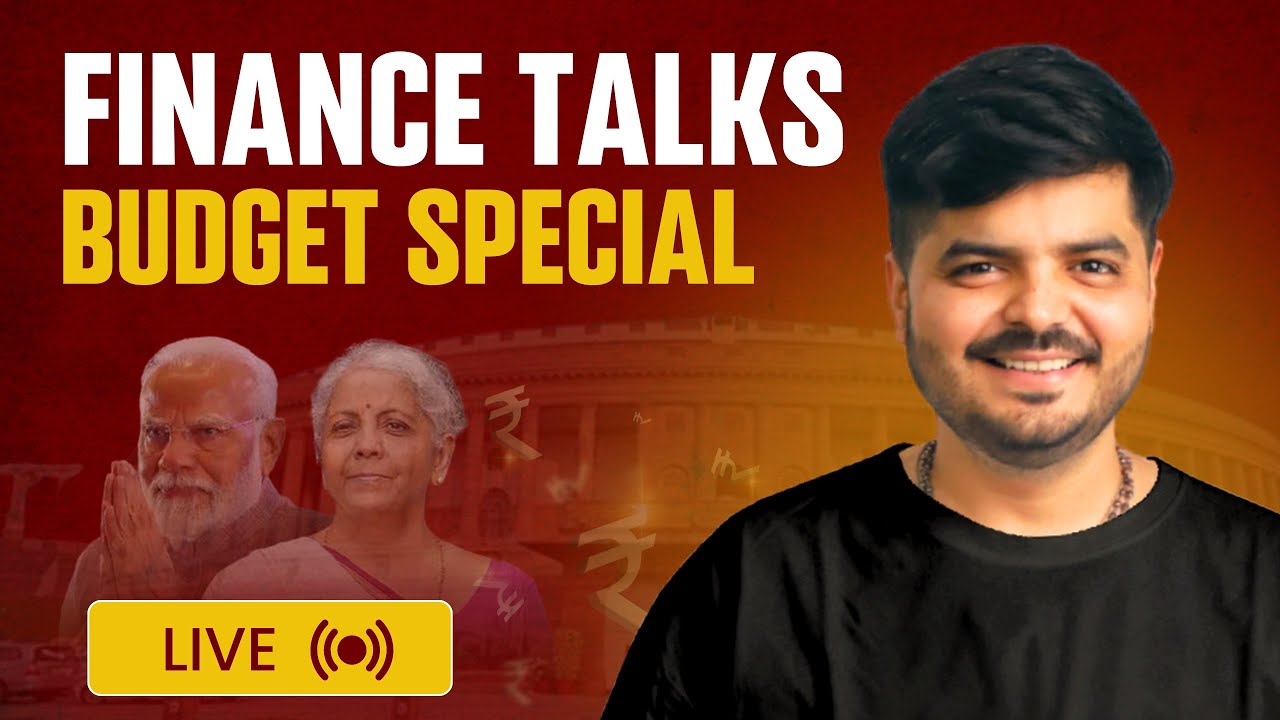Budget 2024 Explained: Why Are People Angry?
Summary
TLDRThe video script discusses the Indian government's recent budget and its impact on consumer mood and private consumption. It criticizes the lack of significant income tax reductions and the increase in various taxes, including those on the stock market, which have left taxpayers dissatisfied. The script also addresses the government's focus on infrastructure and jobs, questioning the feasibility of their promises and the absence of a clear vision for structural changes to boost the economy. The speaker suggests that without improvements in urban governance and a fairer tax system, including agricultural income, the budget may not effectively stimulate consumption or trust among the urban elite.
Takeaways
- 😕 Consumer Mood Impact: The lack of significant income tax changes and increased taxes in the stock market have negatively affected consumer mood, which is crucial for increasing private consumption.
- 📉 Tax Changes: The budget introduced changes to the income tax regime with little benefit to the salaried class, and increased taxes on short-term and long-term capital gains, leading to public dissatisfaction.
- 💼 Government Promises: The government's promise of 'maximum governance, minimum government' is being questioned due to perceived reductions in retail participation in the stock market.
- 🏢 Corporate Earnings: Indian companies have seen significant earnings growth, mainly from the rich, but are hesitant to invest due to concerns about future consumer spending.
- 💼 Economic Focus: The government's budget aimed to increase domestic consumption by providing reasons for the wealthy to spend and creating jobs for the less affluent.
- 📈 Stock Market Concerns: The government's tax changes were intended to prevent the stock market from overheating and reduce speculative trading, which has upset investors.
- 🏠 Property Taxation: The removal of the indexation benefit for property sales means taxpayers will have to pay taxes on the full appreciated value, not accounting for inflation.
- 🤔 Public Anger: Urban taxpayers are angry due to the lack of tax rate decreases, increased capital gains tax, and the removal of the indexation benefit.
- 🌆 Urban Governance: The quality of life in Indian cities is suffering due to poor infrastructure and public services, leading to a lack of trust in the government's ability to improve conditions.
- 🚀 Job Creation: The budget's focus on job creation and skilling is promising, but the feasibility and execution of these plans are uncertain and will be crucial for increasing consumption.
- 🏛️ Infrastructure Investment: The Modi government has pledged a record amount to infrastructure, but there is skepticism about whether this will translate into increased consumption and economic growth.
Q & A
What is the main issue affecting the Indian economy as discussed in the script?
-The main issue affecting the Indian economy is consumption, with people not spending money due to insufficient earnings.
How did the increase in net sales and profits of Indian companies between 2018 and 2022 reflect the economic disparity?
-The increase in net sales by 52% and net profits by 187% indicates that the companies mainly earned from the rich, showing a disparity as the majority of the population was not benefiting from this growth.
What was the government's strategy to increase domestic consumption as per the budget?
-The government's strategy included giving people with money other reasons to spend it and providing jobs to those without money so they can spend in the future.
What changes were made to the income tax regime in the budget, and how did they affect the consumers' mood?
-The standard deduction was reduced, and some income tax slabs were changed, offering minimal benefits to salaried employees and affecting the consumers' mood negatively due to the lack of significant tax relief.
Why were the taxes on financial assets in the stock market increased according to the script?
-The taxes on financial assets were increased to prevent the stock market from overheating and to discourage speculative trading, which the government saw as a form of gambling.
What is indexation in the context of taxation, and why was its removal a point of contention?
-Indexation is a benefit that adjusts the cost of an asset for inflation, saving taxpayers from paying taxes on the increased value due to inflation rather than actual gains. Its removal made selling property less favorable as taxes would now be calculated on the total gain, not adjusted for inflation.
How does the script describe the urban taxpayer's reaction to the budget?
-The urban taxpayer is angry because tax rates did not decrease, capital gains tax increased, and the indexation benefit was removed, with no clear improvements in quality of life or urban governance in return.
What is the script's view on the government's approach to urban governance?
-The script criticizes the government for focusing on identity politics rather than improving urban governance, which is seen as lacking in accountability and effectiveness.
What is the script's perspective on the disparity between tax on salary income and the lack of tax on agricultural income?
-The script points out the unfairness of taxing salary income while exempting agricultural income, which is often misused by wealthy farmers to avoid taxes.
What measures did the government announce in the budget to address job creation and skill development?
-The government announced direct benefits for new workforce entrants, internships in top companies, and infrastructure spending, although the feasibility and execution of these measures are questioned.
What is the script's overall assessment of the government's budget strategy?
-The script views the budget as conservative, with a focus on reducing fiscal deficit and a lack of fundamental and structural changes to significantly boost consumption or address job creation.
Outlines

このセクションは有料ユーザー限定です。 アクセスするには、アップグレードをお願いします。
今すぐアップグレードMindmap

このセクションは有料ユーザー限定です。 アクセスするには、アップグレードをお願いします。
今すぐアップグレードKeywords

このセクションは有料ユーザー限定です。 アクセスするには、アップグレードをお願いします。
今すぐアップグレードHighlights

このセクションは有料ユーザー限定です。 アクセスするには、アップグレードをお願いします。
今すぐアップグレードTranscripts

このセクションは有料ユーザー限定です。 アクセスするには、アップグレードをお願いします。
今すぐアップグレード関連動画をさらに表示

SHARE MARKET के लिए मुसीबत..BUDGET 2024...Explained by Ankit Avasthi Sir

Finance Talks - Whats in the Budget?

Union Budget 2024-25 | Budget 2024 Highlights in Hindi | Complete Analysis | UPSC Economy | StudyIQ

Pakistan Occupied Kashmir (PoK): History and Significance | Protests in Azad Kashmir | Perspective

क्यों भिड़े हैं बीजेपी के समर्थक आपस में? बजट पर मीम क्यों बना रही है सरकार?

Mudda Aapka: कृषि बजट : उपलब्धियां और अपेक्षाएं | 16 July, 2024
5.0 / 5 (0 votes)
